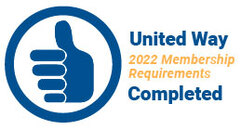|
With no end to the CoVid Crisis in sight, more and more sources are indicating the increased need for mental health and substance use services. I am happy to report that several agencies in the area are meeting the challenge of this critical need. Today we will discuss the services of Mental Health America (MHA). Next week we will look at National Alliance on Mental Illness, (NAMI). Both agencies work to educate and support people involved with mental health issues and their families.
Recently I had a Conversation with Erin Perdue, Director of Engagement and Education for Mental Health America (MHA) Wabash Valley Region, about their services to people in our area. She offered this insight, ‘In suicide prevention training we learn just how important listening can be. Listening is the power tool that can help when someone is feeling down, blue, bad, or having thoughts of suicide. When you check in on your friends, as we ebb and flow in and out of social distancing or isolation, just ask how they are doing and then devote your time to just sit with them and listen. Let them talk. Let them tell their story. Often times, when someone can vent or talk out their worries or troubles, they will feel much better. You offering a listening ear can be a calming salve to their fears and depression. You can then be sure to share the Crisis Line number for those times when you aren’t available.’ Mental Health America is dedicated to eradicating the stigma of mental illness and advocating for the rights of those facing mental health challenges, providing public mental health educational programs, information and referrals, and support groups, to those confronting mental health challenges and their loved ones. MHA provides a variety of services to support those struggling with mental health and substance use issues. They operate the MHA Crisis Center Hotline, Mental Health Navigators, support groups, training and education services, and online mental health screening assessments. According to Erin, as people emerge from isolation, the MHA 24/7 Crisis Hotline (765-742-0244) is a valuable resource. Individuals can call or text this 24/7 hotline for assistance with any crisis including thoughts of suicide. Compassionate, trained volunteers will listen, support, and connect callers to resources and emergency service, if needed. Erin suggests putting the number into your phone to have it easily accessible. Another important service offered by MHA is the Mental Health Navigator. If you suspect you or a loved one may have a mental health issue and aren’t sure where to start, the MHA Mental Health navigator can guide you through the process. During the appointment, the navigator will do a brief assessment to determine the level of need, connect the client to the appropriate services, help schedule an appointment, and assist in working through insurance/payment issues. The navigator can also stay connected to the client to offer support and encouragement through the process. Navigators are not therapists, but guides who walk alongside their clients until they can meet with a clinician. MHA also offers support groups related to bipolar, depression and anxiety, survivors of sexual assault, parents of children with ADD, and suicide survivors. Currently these groups are meeting via Zoom. If you are interested in volunteering for the Crisis Hotline, information on online training is now available through the MHA website. To learn more about all these services, please visit MHAWV.ORG, email [email protected], or call 765-742-1800. Next time we will discuss NAMI services.
0 Comments
Your comment will be posted after it is approved.
Leave a Reply. |
AuthorLynn Saylor is the AmeriCorps member working with the United Against Opioid Abuse Initiative alongside the White County United Way. She is a major facilitator of the United Council on Opioids serving White County and a regular contributor to local media. Archives
October 2020
Categories
All
|

 RSS Feed
RSS Feed
